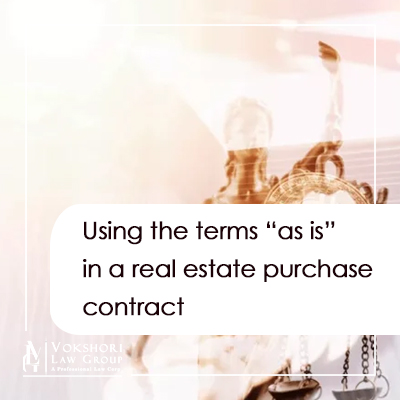
All C.A.R. purchase agreements include an “as is” clause, which states that the property is being sold in its current condition. The RPA-CA, for instance, contains this exact language in paragraph 11.
Is it necessary for the seller to add extra language to ensure the property is sold “as is”? No, the “as is” clause in the C.A.R. contracts is sufficient.
Does the “as is” clause eliminate the seller’s obligation to make any repairs?
No, under the C.A.R. contracts, the seller must maintain the property’s condition as of the acceptance date. If the property is damaged during escrow, and the buyer is not responsible for the damage, the seller will likely have to make the necessary repairs before closing. Furthermore, if there is a specific statement in the agreement, the seller may still be obligated to make repairs despite the “as is” clause. Is the seller responsible for making repairs for state retrofit requirements?
In most transactions, there will be state (and local) retrofit requirements that may necessitate repairs to be made before closing. Even though there is an “as is” clause, the seller may negotiate with the buyer to shift the cost of repairs to the buyer.
Does the “as is” clause relieve the seller from disclosing any information about the property? No, the seller is obligated to disclose any information required by law or contract, regardless of the “as is” clause. This will typically include the TDS, the SPQ, and material fact disclosures.
Does the “as is” clause mean that the buyer cannot investigate the property? No, the “as is” clause only relates to the condition of the property and does not prevent the buyer from conducting inspections. Does the “as is” clause mean that the buyer has waived their contingencies for investigations? No, stating that the property is being sold “as is” does not constitute a waiver of the investigation or disclosure contingencies.
What is the most common mistake when using an “as is” provision?
When the buyer requests a repair, the seller may counter with the “as is” clause, which is unclear. Instead, the seller should explicitly counter the repair request.






